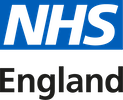We have extended the deadline for application for the School Fellow posts until Monday 4th December at 1200 as we wish to consider applications for all 4 posts advertised. Please consider submitting an application. We would be very happy to be contacted if you require any further information.
Thank you to those of you that have already applied – we do not require a further application and will carry these forwards. Interviews are planned for the afternoon of Monday 11th December. Please see the email sent out this morning (29th November) for the job specifications and application forms.
Best wishes, Maria and Giles


